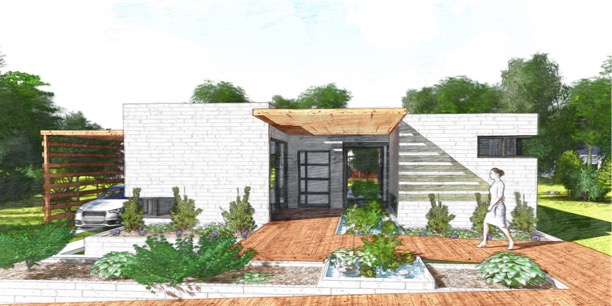Tech’s Solar Decathlon team has continued to design its solar-powered home, a project that started in August 2015. The Solar Decathlon is a challenge set by the U.S. Department of Energy that requires teams to design and build a full-sized, solar-powered home. Tech is one of the 14 colleges selected to compete.
The team began with Alexandre Poux, third-year ME, and a few of his friends. William Courrèges-Clercq, third-year BA and business team lead, was one of the first to join in on the project.
“[We] began this project … because we thought to ourselves that we’re going to be in Atlanta for around five years,” Courrèges-Clercq said. “We’re going to have so many opportunities given to us by being in Atlanta. So how do we do something that gives back to Atlanta? We thought building a solar home … that encompasses the spirit of Atlanta was the appropriate way to do that.”
Now the team has grown to about 50 students, encompassing a variety of majors from Tech.
The home is called Resurgens, Latin for “resurgent” or “resurrecting.” Courrèges-Clercq said this name was chosen “after the Atlanta city motto, which roughly translates to ‘rising again.’” The design of the solar home was created with the idea that it needed to be able to thrive in adversity. It needs to be a sustainable design that minimizes energy consumption, maximizes production and helps solve the problem of uneven and unplanned urban growth.
“The house is going to be zero energy,” said Francesca Gencarella, fourth-year ME and mechanical team lead. “We’re taking in what we’re consuming using solar energy.
Aside from energy, a main focus for the team is utilizing Atlanta’s water supply efficiently.
“We’re looking into a few different things: rainwater harvesting, purifying [the water], giving it potable uses,” Gencarella said. “We are also looking into net-zero water. We want to store all the rainwater and then have zero waste. So basically, we are recycling all the water we have.”
Another design feature being considered is implementing an “Internet of Things” approach of interconnectivity, which will allow the house to interact with the user of the home.
“We are trying to have a water consumption wall,” Gencarella said. “The main idea of this is … for the user to see how much water they’re consuming as the day goes on. The water wall is designed to remind you why the house was built. It’s about water security. Having the [wall] constantly present in the house will let you see your water consumption right in front of you. It’s designed to encourage responsibility.”
“We can build a sustainable house … but if there aren’t people in the house who are practicing sustainable habits, it goes by the wayside,” Courrèges-Clercq said.
“We want to guide [users] into more sustainable habits,” Gencarella said.
The team also hopes to have even farther reaching impacts.
“We see this project not just as one house being built. We’re thinking about how we can we fold what we’ve learned into the curriculum of Tech.
“How can we use this to create projects for the next five years for developing a sustainability edge and revitalizing Westside communities. What can we learn from this home and how can we use it to improve the lives of people around Atlanta?” Gencarella said.
The competition is set to be held in 2017. Those interested can visit Tech’s Solar Home website for more information, or attend a team meeting at 9:30 a.m. on Tuesdays in Klaus 1440.
